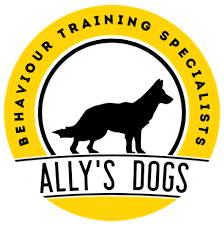Understanding the Cockapoo’s Personality
Cockapoos are a popular hybrid breed, combining the intelligence of the Poodle with the affectionate nature of the Cocker Spaniel. Known for their friendly, outgoing personalities, they make fantastic family pets. However, their high energy levels and intelligence can also present unique training challenges.
Key Cockapoo traits that influence training:
Highly intelligent: Cockapoos inherit sharp problem-solving skills from their Poodle lineage, making them quick learners.
Energetic: They require regular physical and mental stimulation to prevent boredom and behavioural problems.
Affectionate and people-oriented: Cockapoos thrive on human interaction, which means training based on positive reinforcement works very well.
Prone to separation anxiety: Because they form strong bonds with their owners, Cockapoos can develop separation anxiety if left alone for long periods.
Start with Basic Obedience Training
Early obedience training is essential for Cockapoos to develop good manners and listening skills. Here are the key commands to focus on:
Sit and Stay: Cockapoos tend to be excitable, so teaching them to sit and stay helps manage their energy in busy situations.
Recall (Come when called): Cockapoos can be easily distracted by other dogs or scents. Training a strong recall command ensures your dog comes back to you, even in exciting environments.
Leave it/Drop it: Due to their curiosity, Cockapoos may pick up things they shouldn’t. This command helps prevent them from chewing or eating dangerous objects.
Training Tip: Because Cockapoos are so eager to please, using treats, toys, and praise will make training sessions more effective and enjoyable for both of you.
Addressing Cockapoo Hyperactivity
Cockapoos are known for their playful and energetic nature, so it’s important to manage their energy levels through:
Daily Exercise: A Cockapoo requires at least 60-90 minutes of physical activity a day. Activities like walking, running, or playing fetch are excellent ways to burn off their energy.
Mental Stimulation: Interactive toys, puzzle feeders, and hide-and-seek games engage their intelligent mind. You can also teach them new tricks to keep them mentally stimulated.
Structured Playtime: Cockapoos love playing, but it’s important to set boundaries to avoid over-excitement. End play sessions before they get too wild to help reinforce calm behaviour.
3. Socialisation: Key to a Well-Rounded Cockapoo
Socialisation is crucial for all dogs, but especially for Cockapoos, who can sometimes be wary of strangers or other dogs if not properly socialised. Introduce your Cockapoo to a wide range of people, places, sounds, and other animals from an early age. Positive experiences will help them grow into a confident, well-behaved adult.
How to Socialise Your Cockapoo:
- Start by taking them to puppy socialisation classes or dog-friendly parks.
- Invite friends and family over to meet your puppy in a controlled, positive environment.
- Expose them to different environments like cafes, busy streets, or even public transport.
Training Tip: Use treats to reinforce positive experiences when your Cockapoo meets new people or dogs. Keep the encounters short and positive to avoid overwhelming them.
Preventing Separation Anxiety in Cockapoos
Cockapoos form strong attachments to their families and can develop separation anxiety if not taught how to be alone. Symptoms include destructive behaviour, barking, or whining when left alone.
How to Prevent Separation Anxiety:
Gradual Alone Time: Start by leaving your Cockapoo alone for short periods and gradually increase the time. Reward them with a treat or toy when you return to create a positive association with being alone.
Crate Training: Many Cockapoos feel safe in a crate, and it can be a helpful tool in teaching them to be calm when alone. Ensure the crate is comfortable and introduce it as a cosy space for naps and quiet time.
Toys and Distractions: Leave interactive toys or puzzle feeders to keep them entertained while you’re gone. This keeps their mind occupied and helps them associate alone time with fun activities.
Managing Barking and Attention-Seeking
Cockapoos can become vocal or demanding when they want attention, which can turn into a habit if not managed early on.
Training Tip for Barking:
Teach the ‘Quiet’ Command: When your Cockapoo barks, use a firm but calm “quiet” command. Reward them when they stop barking, reinforcing the behaviour you want.
Ignore Attention-Seeking Barking: If your dog barks for attention, avoid engaging with them until they are quiet. Reward the calm behaviour rather than reinforcing the barking.
Grooming and Handling Training
Cockapoos often have curly or wavy coats that require regular grooming. It’s important to introduce them to grooming routines early to avoid stress or resistance later on.
How to Train Your Cockapoo for Grooming:
Introduce Grooming Slowly: Start with short grooming sessions, using treats to create a positive experience. Gradually increase the time as your dog becomes more comfortable.
Teach ‘Stand’ or ‘Stay’ Commands: These commands are useful during grooming to help your Cockapoo remain still while being brushed or trimmed.
Paw and Ear Handling: Cockapoos often need ear cleaning and nail trims, so get them used to having their paws and ears handled from an early age. Touch their paws and ears gently, offering treats to reinforce calm behaviour.
Consistency is Key
Cockapoos respond best to training when it’s consistent and fun. Make sure everyone in your household uses the same commands and rewards the same behaviours. Regular short training sessions are more effective than long ones, as Cockapoos can get bored easily.
Training Tip: End each session on a positive note, even if it’s just with a simple command like “sit.” This helps maintain your dog’s enthusiasm for learning.
Conclusion
Training a Cockapoo can be a rewarding experience, as their intelligence and eagerness to please make them fast learners. With consistent training, mental stimulation, and positive reinforcement, your Cockapoo will develop into a well-behaved, happy companion.
If you need help with more advanced behaviour problems or personalised training, feel free to get in touch for a consultation. Together, we can work on creating a custom training plan for your Cockapoo.

